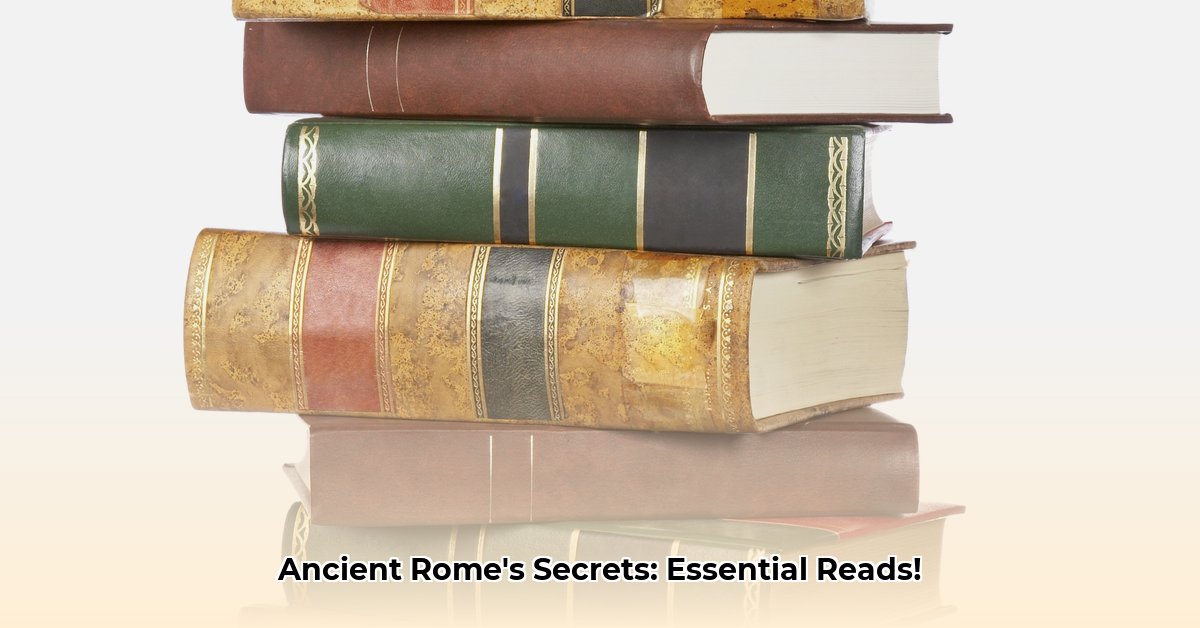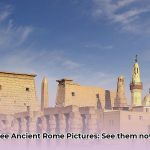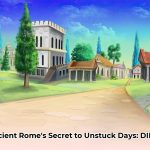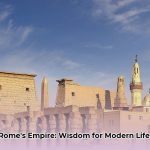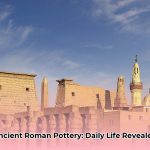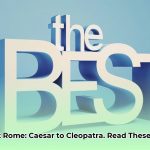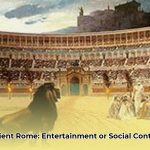Ancient Rome. The very name conjures echoes of gladiatorial arenas, the thunder of legions, and the sagacity of senators debating in marble halls. It’s an epic narrative spanning over a millennium, brimming with power, innovation, and characters as captivating as any fiction. From its humble origins as a cluster of villages on the Tiber to the sprawling heart of a vast empire, Rome’s journey profoundly shaped the Western world. Its legacy permeates everything from our legal systems and architectural marvels to our political thought and even some of our daily habits.
Need a starting point? This guide and these reads offer deep dives.
But where does one begin to unravel this intricate tapestry? The sheer volume of books on Roman history can be daunting, promising both rigorous scholarship and thrilling escapism. This guide cuts through the noise, offering a meticulously curated selection of essential reads that don’t just recount history, but bring it to vibrant, thought-provoking life. Whether you’re a curious beginner seeking an accessible entry point or a seasoned enthusiast ready for a deeper dive, prepare to cross the intellectual Rubicon and gain an unparalleled understanding of why Rome’s story remains profoundly relevant today.
Navigating the Roman Labyrinth: Your Literary Compass
Embarking on a literary exploration of Ancient Rome is a journey best undertaken with a clear map. The path intertwines factual accounts with imaginative retellings, each offering a distinct window into this fascinating epoch. Understanding the differences, and appreciating the strengths of both, is key to a holistic understanding.
Fact vs. Fiction: A Storyteller’s Rome
The allure of Ancient Rome is so potent that it has inspired countless works of historical fiction, from sweeping epics to intimate character studies. These narratives excel at transporting readers directly into the bustling Forum, the tense Senate, or the dusty battlefields, making distant events feel immediate and personal. They breathe life into historical figures, allowing us to empathize with their triumphs and tragedies.
However, it’s crucial to remember that historical fiction, by its very nature, takes creative liberties. Details are embellished, dialogues are invented, and timelines might be compressed for dramatic effect. While these stories offer an invaluable emotional connection to the past, they are not substitutes for rigorous historical analysis. The discerning reader recognizes that a captivating novel might illuminate the spirit of an era, while scholarly works meticulously reconstruct its facts. Both are vital ingredients for a comprehensive understanding.
Echoes of the Republic: When History Rhymes
Few periods of Roman history resonate as powerfully with contemporary challenges as the tumultuous final centuries of the Roman Republic. Often overshadowed by the dramatic reigns of emperors, this era—from the Gracchi brothers’ reforms to Julius Caesar’s ascendancy and the eventual rise of Augustus—is a crucible of political ambition, social unrest, and the slow, painful erosion of democratic principles.
The Republic’s struggles were remarkably complex: entrenched senatorial elites clashing with populist reformers, the widening gap between rich and poor, fierce factionalism, and the increasing reliance on military power to resolve political disputes. Does this sound eerily familiar? By scrutinizing Rome’s missteps during this period, we observe profound, recurring patterns in human governance and society. History, as the saying goes, may not repeat itself exactly, but it often rhymes. Understanding the forces that led to the Republic’s demise offers invaluable lessons for navigating the complexities of our own world, reminding us of the fragility of institutions and the enduring human quest for power.
Curated Library: Essential Reads for Every Roman Enthusiast
This curated list provides a roadmap through the literary landscape of Ancient Rome, from foundational overviews to specialized studies and immersive narratives. Each recommendation illuminates a different facet of this incredible civilization.
| Category | Book Recommendation | Insightful Review & Why It Matters |
|---|---|---|
| Foundational Overviews | SPQR: A History of Ancient Rome by Mary Beard | Mary Beard, a leading classicist, offers a masterclass in Roman history, blending meticulous scholarship with a wonderfully engaging and often witty prose. SPQR challenges traditional narratives, focusing on how Romans themselves understood their world, from its mythological founding to the height of empire. It’s an ideal starting point for anyone seeking a comprehensive, yet highly accessible, understanding of Rome’s enduring legacy. |
| Rubicon: The Last Years of the Roman Republic by Tom Holland | Tom Holland brings the chaotic and compelling final decades of the Roman Republic to vivid life. This book expertly covers the political maneuverings, military campaigns, and societal shifts that led to the civil wars and the eventual rise of Julius Caesar and Augustus. Holland possesses a storyteller’s touch, making this pivotal, high-stakes era feel like a thrilling, unfolding drama, immersing readers in the ambitions and betrayals that shaped one of history’s greatest transformations. | |
| Emperors & Power | The Twelve Caesars by Suetonius (Robert Graves translation is highly recommended) | Written by the imperial secretary Suetonius, this classical text offers an unvarnished, often scandalous, look at Julius Caesar and the first eleven Roman emperors. Far from a dry historical account, Suetonius revels in the juicy details of their personal lives, vices, and eccentricities, making it an endlessly entertaining and surprisingly insightful read on how absolute power corrupts. Robert Graves’ translation, especially, injects a lively, readable quality that makes this ancient “gossip rag” accessible to modern audiences. |
| Augustus: First Emperor of Rome by Adrian Goldsworthy | Goldsworthy—a master of military and biographical history—delivers a masterful biography of Augustus, the man who transformed a dying Republic into a stable Empire. This book meticulously traces Augustus’s complex life, from his adoption by Julius Caesar to his consolidation of power and the establishment of the Pax Romana. Goldsworthy balances political detail with insightful character analysis, offering a nuanced understanding of Augustus’s genius and the profound impact he had on Western civilization. | |
| The Emperor in the Roman World by Fergus Millar | For those seeking a deeper academic understanding, Millar’s seminal work is a comprehensive examination of the multifaceted role of the Roman emperor. Drawing on an extensive array of sources, Millar dissects how the emperor functioned not just as a political and military leader, but also as a religious figure, a judge, and the ultimate arbiter of power. This book is crucial for comprehending the unique position of the emperor and his profound influence over every aspect of Roman society, highlighting the complexities that underpinned imperial rule. | |
| Daily Life & Society | Daily Life in Ancient Rome: The People and the City at the Height of the Empire by Jérôme Carcopino | Carcopino’s classic offers a fascinating window into the mundane and extraordinary realities of everyday Roman life. It delves beyond emperors and battles, exploring the social classes, religious practices, entertainment, and even the culinary habits of ordinary citizens. From the bustling markets to the intricacies of domestic life, this book paints a vibrant, granular picture of what it truly meant to live in Rome at its zenith, making the ancient world feel remarkably tangible and approachable. |
| Domina: The Women Who Made Imperial Rome by Guy de la Bédoyère | While much of Roman history focuses on men, de la Bédoyère brings the powerful, often-overlooked women of Imperial Rome into the spotlight. From the wives of emperors to influential aristocratic figures, Domina explores how these women wielded power, navigated societal constraints, and shaped the course of history from behind the scenes. It’s an essential read for anyone interested in gender dynamics and the social complexities of Ancient Rome, providing a much-needed perspective on the broader human landscape of the empire. | |
| Primary Sources | The History of Rome by Livy | Livy’s monumental work is a cornerstone of classical scholarship, offering a comprehensive narrative of Rome from its fabled foundational myths to the reign of Augustus. Though only a fraction of his 142 books survive, Livy provides invaluable insights into early Roman society, its political evolution, and military campaigns. Reading Livy is to engage directly with how Romans themselves constructed their past, making it an indispensable, albeit challenging, resource for serious students of the Republic. |
| Commentarii de Bello Gallico (The Gallic Wars) by Julius Caesar | Authored by Julius Caesar himself, these firsthand accounts provide unparalleled insights into Roman military tactics, the logistical genius of an army on the move, and the complexities of Roman expansion. Caesar’s clear, precise prose offers a direct window into the mind of one of Rome’s most pivotal figures, detailing his campaigns, observations on Gallic tribes, and the political ambitions that underpinned his conquests. It’s a foundational text for understanding Roman military strategy and the psychology of leadership. | |
| The Decline & Fall | The Decline and Fall of the Roman Empire by Edward Gibbon | Published in the late 18th century, Gibbon’s magnum opus remains one of the most famous and influential works of history ever written. It chronicles the decline and fall of the Roman Empire in the West, offering a sweeping, often controversial, narrative that delves into political corruption, military overextension, and the role of Christianity. While some of its interpretations have been challenged by modern scholarship, Gibbon’s masterful prose, sardonic wit, and monumental scope make it an essential read for understanding the historiography of Rome’s collapse and a powerful exploration of imperial decay. |
| The Fate of Rome: Climate, Disease, and the End of an Empire by Kyle Harper | This groundbreaking work offers a compelling, data-driven argument that environmental factors—specifically climate change and epidemics—played a significant, often overlooked, role in the Roman Empire’s decline. Harper synthesizes historical accounts with cutting-edge research in climate science and pathology, presenting a nuanced picture of how natural forces exacerbated existing internal weaknesses. It’s a vital read for those interested in interdisciplinary history and the complex interplay between human civilization and the natural world, offering a chillingly relevant perspective for today. | |
| Beyond Text | Ancient Rome: The Definitive Visual History by DK | For those who learn best through visual engagement, this lavishly illustrated volume is unparalleled. It combines authoritative text with breathtaking photographs, detailed maps, architectural reconstructions, and CGI imagery that vividly bring ancient Rome to life. From the grandeur of its monuments to the minutiae of daily life, this book offers a comprehensive visual journey through one of history’s most iconic civilizations, making it an excellent companion to more text-heavy historical accounts. |
| Historical Fiction | I, Claudius by Robert Graves | A true literary masterpiece, Graves’s novel offers an intimate, often darkly humorous, exploration of the Julio-Claudian dynasty, narrated by the unlikely Emperor Claudius himself. Blending verifiable historical events with brilliant fictionalized insights, I, Claudius delves into the power struggles, eccentricities, and brutal realities of imperial court life. It provides a deeply immersive, psychological portrayal of the individuals who shaped Rome’s early empire, offering a unique and unforgettable perspective on historical figures. |
| Imperium: A Novel of Ancient Rome by Robert Harris | This enthralling novel, the first in Harris’s Cicero trilogy, plunges readers into the cutthroat world of late Republican Roman politics through the eyes of Cicero’s loyal secretary. Harris masterfully recreates the intricate legal and political battles, the persuasive power of rhetoric, and the dangerous ambitions that defined this era. It’s a gripping, meticulously researched piece of historical fiction that humanizes the giants of Roman history and illuminates the complexities of their world with suspense and depth. |
Deepening Your Roman Studies: Beyond the Books
Simply reading books, no matter how excellent, is just one step in mastering Roman studies. To truly grasp the complexity and enduring relevance of this civilization, a multi-faceted approach is essential. Consider these strategies to enhance your learning journey and transform passive reading into active understanding.
Cultivating a Roman Mindset: Chronology and Context
To truly embark on your Roman adventure, establish a firm foundation, much like the Romans built their enduring roads.
- Chronological Mastery: Begin by building a robust timeline. When did Rome rise and fall? Who were the pivotal figures during the Republic, the Early Empire, and the Late Empire? Understanding the precise sequence of events and their relationships is paramount for contextualizing information. A clear chronological framework prevents key figures, events, and ideas from floating in an unanchored historical void.
- Visual and Experiential Learning: Ancient Rome was a vibrant, tactile world. Complement your reading with visual resources like historical documentaries, virtual tours of archaeological sites, and detailed maps. Engaging with the physical remnants of the empire—its architecture, art, and artifacts—can bring dry facts to life. Think about the scale of the Colosseum or the engineering marvel of an aqueduct; seeing these wonders, even in reproduction, makes their impact resonate.
Interdisciplinary Connections: Rome in the Modern Mirror
Perhaps the most compelling reason to study Ancient Rome is its profound and undeniable influence on our modern world. Rome didn’t just exist in the past; its legacy is woven into the fabric of contemporary society.
- Law and Governance: Explore how Roman legal principles, concepts of citizenship, and administrative structures profoundly shaped Western legal systems and political thought. From the idea of “innocent until proven guilty” to the very concept of a republic, Rome’s legal and governmental frameworks laid crucial groundwork.
- Architecture and Engineering: Observe how Roman architectural innovations—the arch, the dome, concrete—continue to inspire and form the basis of modern construction. Their roads, aqueducts, and public works demonstrate an engineering prowess that was centuries ahead of its time.
*
